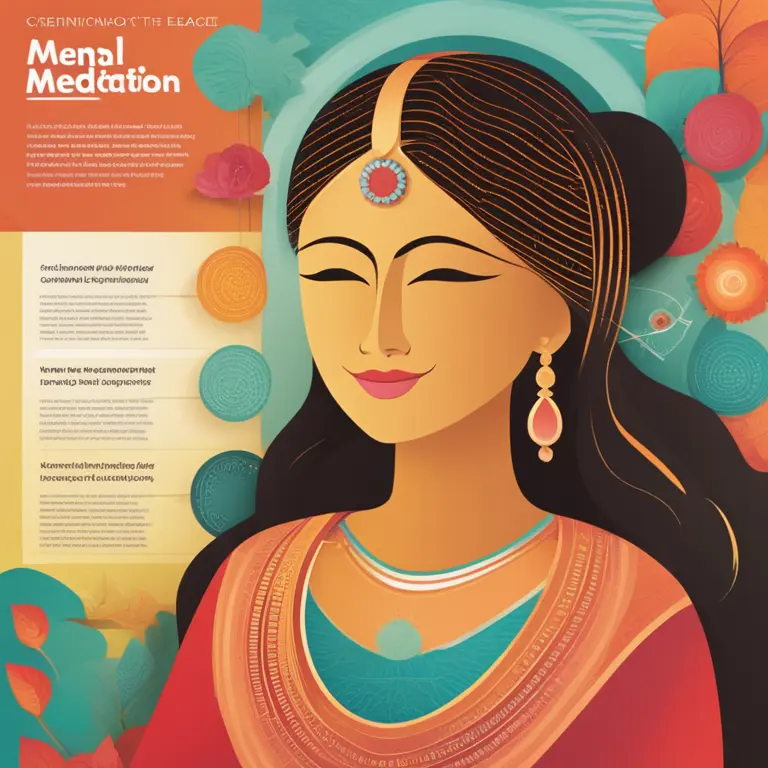
The Essence of Meditation Practices
Discover the core principles and techniques of meditation practices in the modern age, and how they contribute to mindfulness and well-being.
article by Hina Kurosawa
Defining Meditation in the Modern Context
Meditation, often perceived as an ancient practice, has been redefined in contemporary society as a versatile tool for mental clarity, emotional balance, and enhanced focus. Adaptations have seen traditional methodologies merge with modern therapeutic techniques, making meditation more accessible and applicable to a variety of lifestyles. With a growing body of scientific research supporting its benefits, meditation practices are increasingly incorporated into daily routines to navigate the complexities of 21st-century living. In its essence, meditation involves the deliberate focus of attention to bring about a state of peace and self-awareness.

Core Techniques of Meditation
The umbrella of meditation practices spans a broad spectrum of techniques, each with unique approaches to cultivating mindfulness. Mindful breathing anchors the practitioner in the present moment, providing a foundation for many other forms. Visualization, or guided imagery, leads the meditator on journeys through the mind's eye to manifest relaxation and healing. Mantra meditation employs repetitive sounds to clear the mind, while movement-based practices like yoga and tai chi incorporate bodily flows to achieve a meditative state. Each technique offers distinct pathways toward inner tranquility.

Adapting Practices for Individual Needs
Recognizing personal preferences and needs is vital in choosing a meditation practice. For those seeking to alleviate stress, practices focusing on breath and mindfulness may render the most immediate benefits. Individuals grappling with emotional turmoil might find solace in loving-kindness meditation, which promotes compassion and self-love. Athletes and those with an active lifestyle could resonate with dynamic meditation forms. The modern era emphasizes the importance of tailor-fitting meditation practices to one's unique life circumstances, ensuring a more sustainable and beneficial practice.

Scientifically-Backed Advantages
An expanding cache of scientific literature underscores meditation's role in augmenting mental and physical health. Studies have flagged its potential in reducing anxiety, managing chronic pain, and improving sleep patterns. Furthermore, consistent meditation practice has been linked to alterations in brain structure associated with enhanced focus and emotional regulation. As medical understanding evolves, an upsurge in incorporating meditation into preventive healthcare regimens is observed, illustrating its significance beyond merely a wellness trend.

Integrating Meditation with Modern Technology
The digital age has transformed the dissemination and practice of meditation. Mobile applications and virtual reality experiences are crafted to facilitate meditation and are tailored to users' preferences and goals. Virtual communities offer support and guidance, while wearable tech monitors physiological responses during practice, offering real-time feedback. The convergence of technology with meditation exemplifies how traditions are adapting to contemporary needs, granting a wider audience access to its profound benefits.
Meditation as a Lifelong Journey
Meditation is not a destination but a journey of continual growth and discovery. The adaptability of practices to suit various life stages and circumstances underscores its enduring relevance. As society progresses, so too does the understanding and application of meditation, suggesting its potential to evolve indefinitely as a cornerstone of holistic well-being in an ever-changing world.
Published: 2/12/2024
Modified: 2/12/2024
More predictions
Come back here soon to learn more about yourself and your future


Variety of Meditation Practices for Inner Peace
Discover a curated list of meditation techniques to cultivate mindfulness and tranquility in your daily life.


Varieties of Meditation: A Comprehensive Guide
Discover the diverse meditation techniques to enhance your mental wellness and spiritual growth. Delve into this guide for insight into the different paths of mindfulness.


The Spectrum of Meditation Practices for Inner Harmony
Delve into the various meditation techniques designed to foster mindfulness, tranquility, and deeper self-awareness.